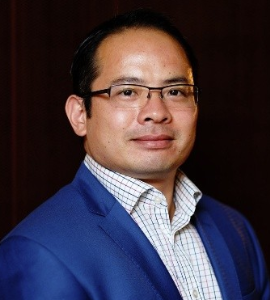
Paul Pun. Source: MEDIQ Financial
Specialists are not immune from the payroll tax crackdown by state revenue offices that has seen many medical practices slugged with backdated bills, a leading financial advisor has warned.
It comes amid growing alarm about the number of private practice owners issued assessments running to hundreds of thousands of dollars in unpaid payroll tax on money earned by their doctors.
Medical finance expert Paul Pun says doctors’ earnings have historically been exempt from the levy under contractual arrangements which said they were not technically working for their practice.
Instead, they would pay a percentage of their billings as a service fee in return for access to facilities and admin support.
But in a high-profile case last year, a chain of primary care medical practices was ordered to pay almost $800,000 in backdated tax after losing a legal battle against Revenue NSW.
The NSW Civil and Administrative Tribunal also ruled that the “onus of proof” lay with the practice to show it was not employing the doctors — even with contracts which specified otherwise.
Together with a similar decision in Victoria a year earlier, it had sent shockwaves through the industry, said Mr Pun, the director of accounting & taxation at MEDIQ Financial Services.
“State governments are desperate for revenue and it’s clear they have begun targeting medical practices,” he said.
“The focus has mostly been on GPs, but specialists will come into it as well if they are working privately, especially in group practices.”
It comes after the NSW AMA launched a campaign appealing to the State Government to exempt all medical practices from payroll tax.
Launched this month, the push is meant to run across social media and physical posters at practices with the slogan of “Payroll tax – who pays the price?”.
“Payroll tax has implications for all medical practices,” the AMA branch said, adding the NSW payroll tax rate was currently set at 4.85%.
“So for a practice providing services to a doctor who generates an average $250,000 in income (after costs), the practice could have $12,125 in additional costs per doctor.”
Get legal advice
Mr Pun stressed it was possible to avoid the crackdown, but contracts had to be “rock solid” to ensure doctors were dealing with the medical practice at arms length.
“We have been advising all of our clients to have their contracts reviewed by a lawyer to ensure they will satisfy being treated as an independent contractor,” he said.
“Saying you are not an employee won’t cut it. It is important there is substance to that and what is actually happening should mirror what is in the contract.”
He said potential safeguards could include contracts which specified the doctor set their own hours and were free to work elsewhere and paid for their own professional indemnity insurance.
It was also possible to pay patient billings directly into the doctors’ bank accounts, with the service fee then paid back to the practice, Mr Pun said.
“You can imagine how bad that would be, but it is a decision that some practices are making to protect themselves,” he said.
“Obviously that’s a last resort because practices are suddenly in a situation of having to recover debts from their doctors and installing multiple payment terminals. It’s an absolute nightmare.”
Mr Pun said any doctor or practice manager seeking advice could contact him by emailing [email protected].